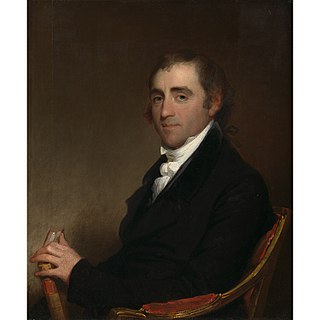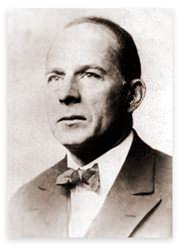A Quote by James Madison
The necessity of a senate is not less indicated by the propensity of all single and numerous assemblies, to yield to the impulse of sudden and violent passions, and to be seduced by factious leaders, into intemperate and pernicious resolutions.
Quote Topics
Related Quotes
The people as a body cannot deliberate. Nevertheless, they will feel an irresistible impulse to act, and their resolutions will be dictated to them by their demagogues... and the violent men, who are the most forward to gratify those passions, will be their favorites. What is called the government of the people is in fact too often the arbitrary power of such men. Here, then, we have the faithful portrait of democracy.
What a mistake to suppose that the passions are strongest in youth! The passions are not stronger, but the control over them is weaker! They are more easily excited, they are more violent and apparent; but they have less energy, less durability, less intense and concentrated power than in maturer life.
In cities men cannot be prevented from concerting together, and from awakening a mutual excitement which prompts sudden and passionate resolutions. Cities may be looked upon as large assemblies, of which all the inhabitants are members; their populace exercises a prodigious influence upon the magistrates, and frequently executes its own wishes without their intervention.
The true clerc is Vauvenargues, Lamarck, Fresnel, Spinoza, Schiller, Baudelaire, César Franck, who were never diverted from single-hearted adoration of the beautiful and the divine by the necessity of earning their daily bread. But such clercs are inevitably rare. The rule is that the living creature condemned to struggle for life turns to practical passions, and thence to the sanctifying of those passions.
[Regarding legislative assemblies,] the number ought at most to be kept within a certain limit, in order to avoid the confusion and intemperance of a multitude. In all very numerous assemblies, of whatever characters composed, passion never fails to wrest the scepter from reason. Had every Athenian citizen been a Socrates, every Athenian assembly would still have been a mob.
So strong is this propensity of mankind to fall into mutual animosities, that where no substantial occasion presents itself, the most frivolous and fanciful distinctions have been sufficient to kindle their unfriendly passions and excite their most violent conflicts. But the most common and durable source of factions has been the various and unequal distribution of property.
The history of ancient and modern republics had taught them that many of the evils which those republics suffered arose from the want of a certain balance, and that mutual control indispensable to a wise administration. They were convinced that popular assemblies are frequently misguided by ignorance, by sudden impulses, and the intrigues of ambitious men; and that some firm barrier against these operations was necessary. They, therefore, instituted your Senate.





























